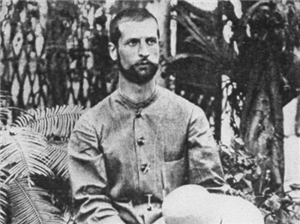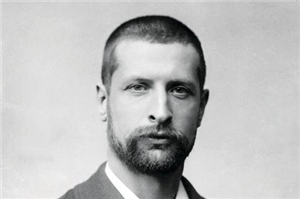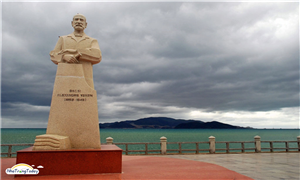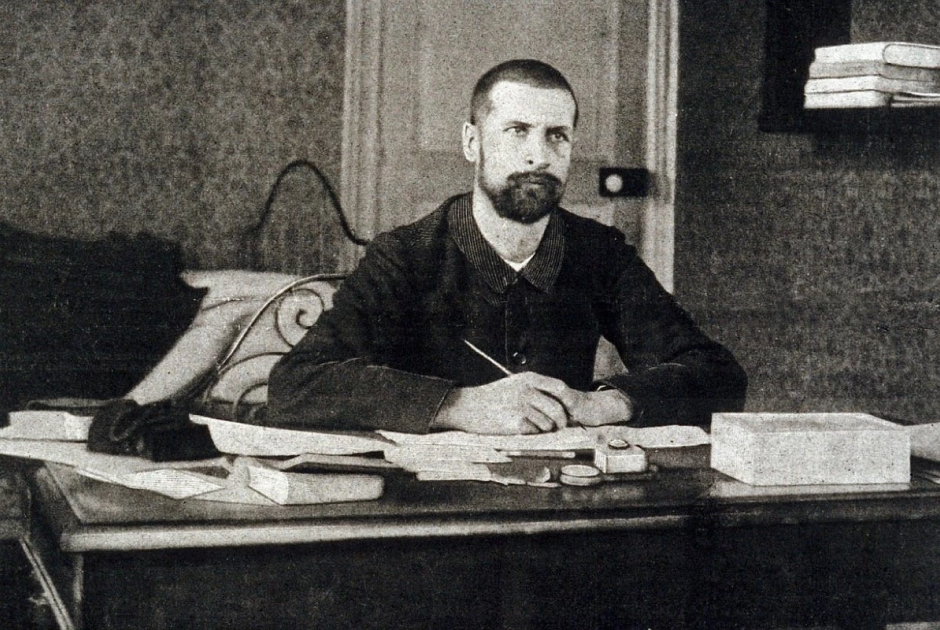Alexandre Yersin was born in 1863, a Swiss national with French citizenship. He lost his father before he was born. In addition to lacking a father figure, Yersin was influenced by a religious education and daily interactions with women. After his father passed away, to support his education, his mother opened classes teaching cooking, music, painting, and other skills.
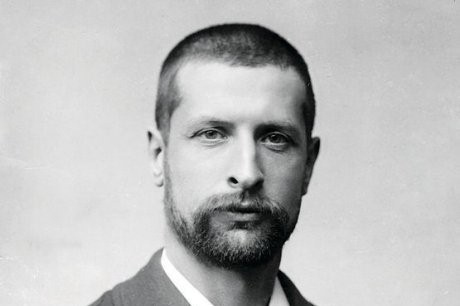
Ngày nay, các nhà doanh nghiệp, các nhà đầu tư, học sinh sinh viên học tập nghiên cứu ở Đà Lạt, cư dân thành phố Đà Lạt, du khách trong nước và Quốc tế hẳn không quên Bác sĩ Alexandre Yersin – Nhà khoa học chân chính, mà tên tuổi ông gắn liền với sự hình thành thành phố Đà Lạt từ cuối thế kỷ XIX.
Alexandre Yersin was born in 1863, in Switzerland, and held French citizenship. He lost his father before he was born. Apart from being fatherless, Yersin was influenced by a religious education and daily interactions with women. After his father’s demise, his mother opened classes teaching cooking, music, painting, etc., to support Yersin’s education and attract girls from Germany and various regions of Switzerland.
Yersin’s upbringing and intellectual development fostered a deep passion for scientific research throughout his life.
In his youth, Yersin achieved remarkable success by defending his doctoral thesis in Paris in 1888. The topic was “Study of the Development of Blood Infection in Experimental Tuberculosis.” He was awarded a medal by the Paris Medical School, despite being only 25 years old at the time. Shortly after, in collaboration with Dr. Roux, Yersin identified the toxin of the bacillus causing diphtheria, further enhancing his reputation.
In 1894, after extensive research and experimentation, Yersin discovered the plague bacillus. His studies led to the development of drugs for treating and preventing the plague, for which the French government awarded him the Bac Dauphin Medal. By 1896, during a resurgence of the plague epidemic in China, Hong Kong, Guangdong, Yersin’s medication saved 80% of the patients.
The plague had claimed over 50 million lives worldwide before Yersin’s breakthrough, making it no longer an incurable disease.
At the 10th World Congress of Microbiology in 1970, it was decided to name the plague bacterium after its discoverer: Yersinia Pestis.
Humanity owes gratitude to Dr. Yersin for his work on the plague, as well as to the scientist Louis Pasteur for rabies.
In 1902, Dr. A. Yersin became the Dean of the Hanoi Medical School, now known as Hanoi Medical University. He also served as the Director of the Pasteur Institute in Indochina, which included the Pasteur Institutes in Nha Trang and Saigon. Today, the Pasteur Institutes in Vietnam continue to effectively contribute to disease prevention and treatment for the people.
Dr. A. Yersin was passionate about scientific research across various fields. In addition to medicine, he achieved success in biology, agriculture, astronomy, and physics. He successfully cultivated rubber trees in Suoi Dau, Canh kyna trees in Hon Ba, and conducted experiments on the Langbian Plateau to produce highly effective malaria drugs. At Suoi Dau in Dien Khanh, located 20 km from Nha Trang, he established a plantation covering nearly 4000 hectares for rubber, corn, rice, tobacco, and livestock such as horses, buffaloes, cows, goats, and sheep. Particularly, horses were carefully raised to provide raw materials for producing plague vaccines.
In February 1893, during an expedition to the wild and rugged mountains of Central Vietnam, Yersin discovered the Langbian Plateau. He proposed to the Governor-General of French Indochina, Paul Doumer, to choose Dalat (formerly known as Dan Kia) as a site for a resort due to its suitable conditions regarding land, climate, water sources, and potential for building transportation routes connecting Bien Hoa, Dong Nai, and the coastal areas of Central Vietnam. Since then, Dalat has begun to develop and prosper, now spanning 115 years of history.
During the formation and development of Dalat, several schools were named after Yersin, such as the Lycée Yersin high school, founded in June 1935 (now the Dalat Pedagogical College). The Yersin University of Dalat was established in October 2004, and the Yersin High School was founded in December 2005. There are streets and parks named after Yersin as well. Particularly noteworthy was the significant event on March 7, 2008, when the “Strategic Cooperation Agreement Signing Ceremony between Yersin University and Saigon Thuong Tin Commercial Joint Stock Bank” took place at Yersin University in Dalat.
Thus, leaders, managers, investors, scientists, shareholders, and employees from both sides have contributed their intellect and efforts to build Yersin University into a prestigious institution in Vietnamese higher education. This also acknowledges the scientific contributions of Dr. A. Yersin to Dalat, to the development of the country, and to global scientific endeavors.
Living and working in Vietnam for nearly 50 years, engaging in scientific activities for 57 years, Dr. A. Yersin successfully researched 55 scientific projects. These included 40 medical projects (13 of which focused on studying the plague), and 10 projects in biology and agriculture (including 5 projects on the cultivation and production of Canhkyna for treating malaria). About 60 of Dr. A. Yersin’s scientific articles published in contemporary journals are still preserved.
As Dalat flourishes into what it is today, we still remember Dr. A. Yersin – a true scientist whose scientific career was illustrious. He was modest, humble, and not concerned with fame. His name and legacy continue to resonate within the intellectual community, boldly etched in the history of Dalat’s formation. As Dalat becomes increasingly beautiful, it rightfully earns its place as a renowned center for culture, education, scientific research, tourism, and leisure in Vietnam. Future generations will always remember him with profound admiration.
MSc. Ngo Manh Phung
Head of Student Affairs


